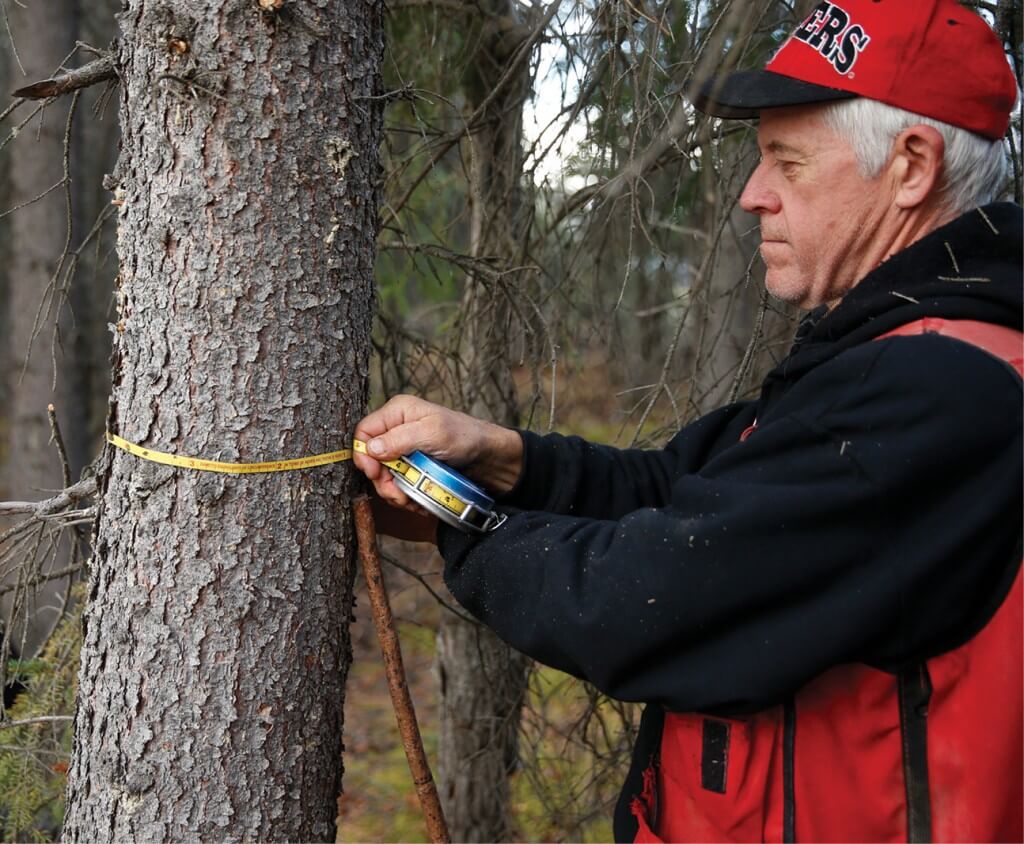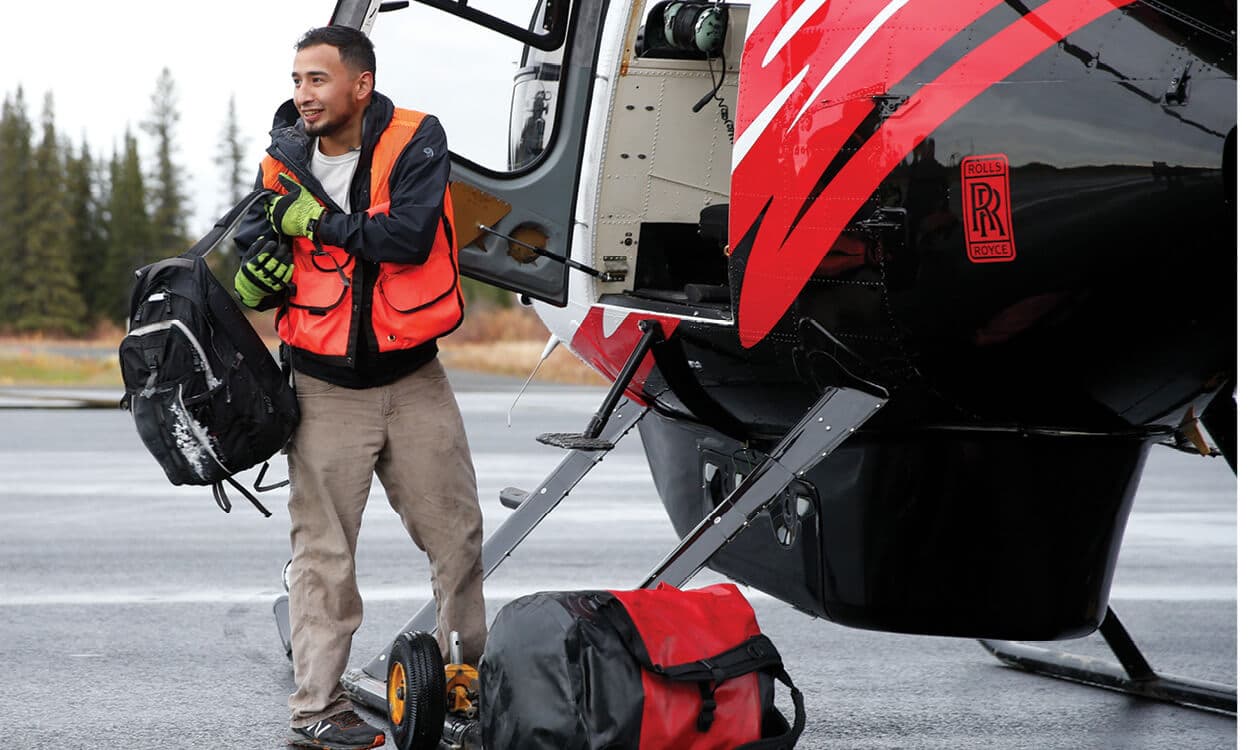To help determine whether Ahtna can protect its forest resources but still receive value for them, Ahtna kicked off a forest-carbon-sequestration inventory project in August.

“The traditional value of respect for the environment and protection of our vast natural resources have sustained the Ahtna people for generations,” noted Ahtna President Michelle Anderson. “Ahtna is now looking into a program that will pay us for continuing to protect our forest resources.”
The program is called “carbon offsetting.” It allows companies such as electric utilities and oil refineries to compensate for the carbon-dioxide pollution they create – their carbon footprint – by preventing the same amount of pollution from happening somewhere else. More precisely, one carbon offset means compensating for emitting one ton of carbon dioxide (CO2) into the atmosphere by preventing a ton of CO2 from entering the atmosphere elsewhere on Earth.
In Ahtna’s case, that means preserving our forests since trees pull CO2 from the air when they grow.
“There’s two ways to generate finance on a timber property,” said Dick Kempka, Climate Trust’s chief commercial officer. The Climate Trust is a conservation finance non-govermental organization that is working with some Native villages and corporations to keep trees standing.
“One, you cut the trees and you get paid for the timber. Another is to protect the trees. You don’t get payment for that unless you can do a carbon deal. This is a new kind of conservation finance mechanism that gives value to the eco asset on the property that formerly had no value.”
Alaska’s first successful carbon credit program is the 8,200-acre Afognak Forest Carbon Project, which was created in 2006.
Ahtna has teamed with Finite Carbon, a world leader in helping landowners take advantage of the carbon that’s stored in their land’s trees by selling the credits.
Here’s how it works:
Finite Carbon provides the capital to get forest carbon projects developed and approved at little to no cost to landowners like Ahtna. Once a project is successfully registered and approved, Finite Carbon takes a minority percentage of the registered offsets. Post approval, a landowner receives market insight, offset sales support, training and ongoing project monitoring. Finite Carbon is responsible for every step in the process that leads to carbon revenues. There is an in-house industry expert for each step (other than verification, as that task must be performed by an outside third party, whom Finite Carbon will hire and pay).

Here are the specific steps:
- Conduct a feasibility study of the forest
- Complete a carbon inventory of the forest
- Select appropriate registry/protocol
- Translate inventory into carbon model and management plan
- Prepare and submit project plan to chosen carbon registry
- Hire third-party project verifier once plan is accepted and registered
- Submit project verification to registry and receive allocation of carbon offsets
- Market and sell carbon offsets in Finite Carbon’s proprietary network or engage top brokers to broaden sales process
The first step is under way. Following wilderness training and bear guard certifications, six two-person crews of shareholder-owners are inventorying 300 permanent forest plots across 700 square miles of Ahtna land.
“Thanks to all of the Glennallen staff for supporting these work activities,” said Tom Maloney, Ahtna Netiye’ CEO. “We cannot do any work in the region without excellent support from our One Team, One Ahtna corporate personnel.”
Alexa FitzGerald is the onsite coordinator and team lead on the project for AEI. “She is a young environmental scientist from Talkeetna and a great example of our talented Ahtna workforce,” Maloney said.
Crews are expected to hike more than 900 miles to reach all the plots, with the field project wrapping up in October. Four Ahtna four-wheelers and two pickup trucks are supporting the effort.
Ahtna will keep shareholder-owners updated as this project progresses.
International companies on hunt for credits

What are the credits worth?
Tim King, director of the Carbon Technology Transfer Center in Washington state, said tree-planting projects in Washington have captured $100 to $200 per acre for landowners who have reforested their property.
And an emerging market in Chicago, known as the Chicago Climate Exchange, trades carbon credits to various energy companies for about 95 cents each.
King said international oil companies, such as BP, Amoco, Shell, Texaco and ExxonMobil, all have carbon-credit divisions that invest in projects, such as forest preservation and reforestation, to mitigate greenhouse emissions.
